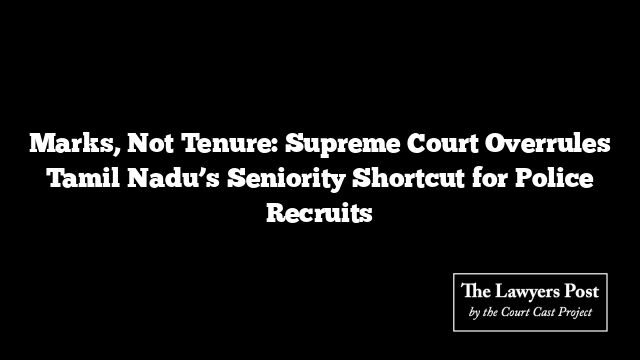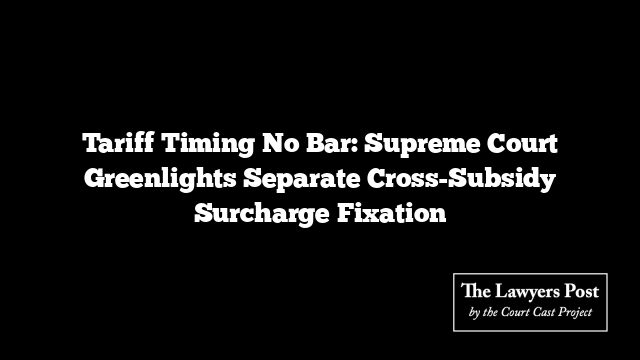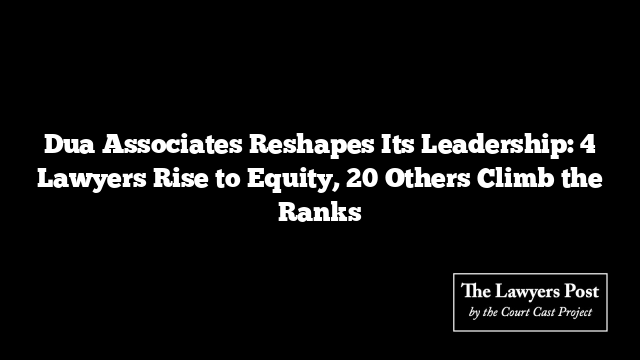In a stern rebuke to bureaucratic shortcuts that favor past service over proven merit, the Supreme Court has torched a decades-old policy in Tamil Nadu that allowed lower-scoring in-service police candidates to leapfrog over higher-ranking open market recruits in the seniority list.
The top court didn’t mince words. It ruled that if you’re entering through a direct recruitment exam, the ladder of seniority must rest firmly on your performance — not on the years you’ve already logged in the system.
At the heart of this storm: a 1995 government order that reserved 20% of Sub-Inspector posts for in-service Head Constables. But it didn’t stop there — it handed them automatic seniority over higher-scoring candidates from the open market. This preferential treatment, eventually embedded retroactively into recruitment rules in 2017, has now been declared unconstitutional.
The bench, led by Justices BV Nagarathna and SC Sharma, found the amendment violative of the core constitutional guarantees of equality (Article 14), fair public employment (Article 16), and due process (Article 21). The judgment was clear: executive orders can’t trample statutory norms or override merit.
The Court observed that while reserving a quota for in-service candidates is valid, giving them a free pass to the top of the seniority list—despite lower marks—defeats the very principle of competitive selection.
In essence: promotions in public service cannot be a reward for longevity alone.
Referencing prior rulings in Dinesh Kumar Gupta and Prem Narayan Singh, the Court reinforced that once an open competition is held, rank and marks must dictate position—not tenure in a feeder role.
It wasn’t just about fairness going forward. The Supreme Court ordered a complete recalibration of seniority lists — from 1995 onwards. The verdict includes clear instructions:
- Redo every seniority list since 1995, assigning rank purely by exam performance.
- No reversals for already promoted officers, but freeze further promotions until the corrected lists are in place.
- Grant notional promotions to eligible direct recruits without back pay.
- Implement one unified exam going forward for both open and in-service candidates, with a single seniority ladder based strictly on scores.
In a system where years in the chair often eclipse results on paper, this ruling sets a precedent: merit matters — and the Constitution won’t tolerate short-circuits around it.
A line in the sand has been drawn: score higher, climb higher. The rest, no matter how long they’ve served, will have to earn it the hard way.





